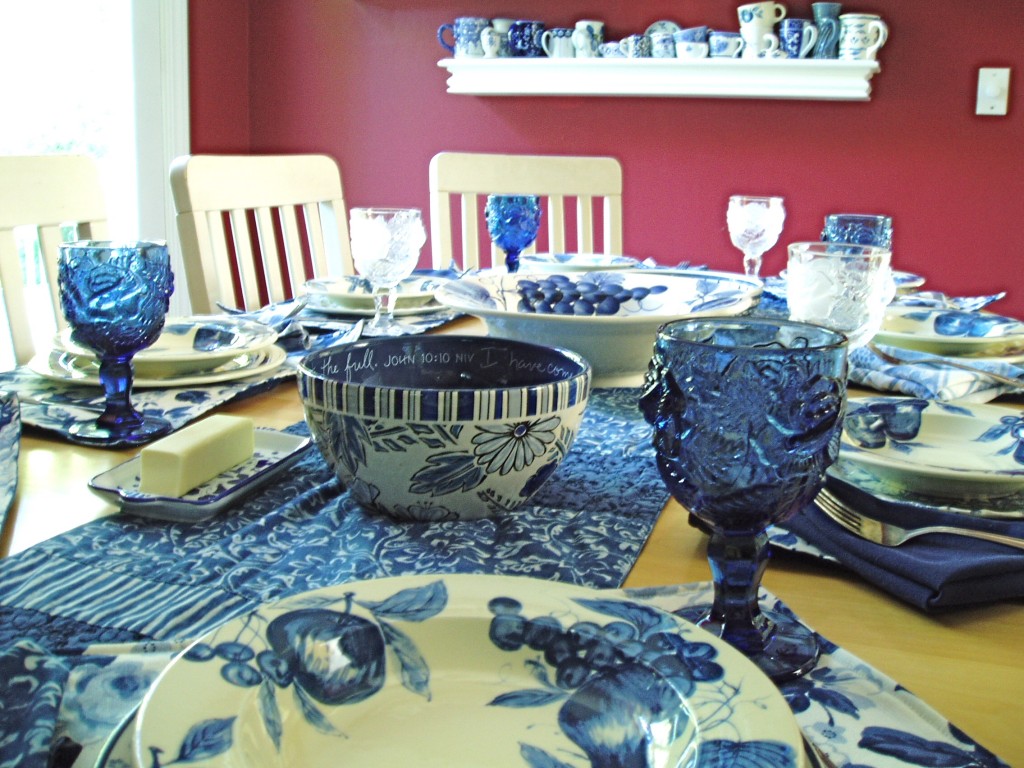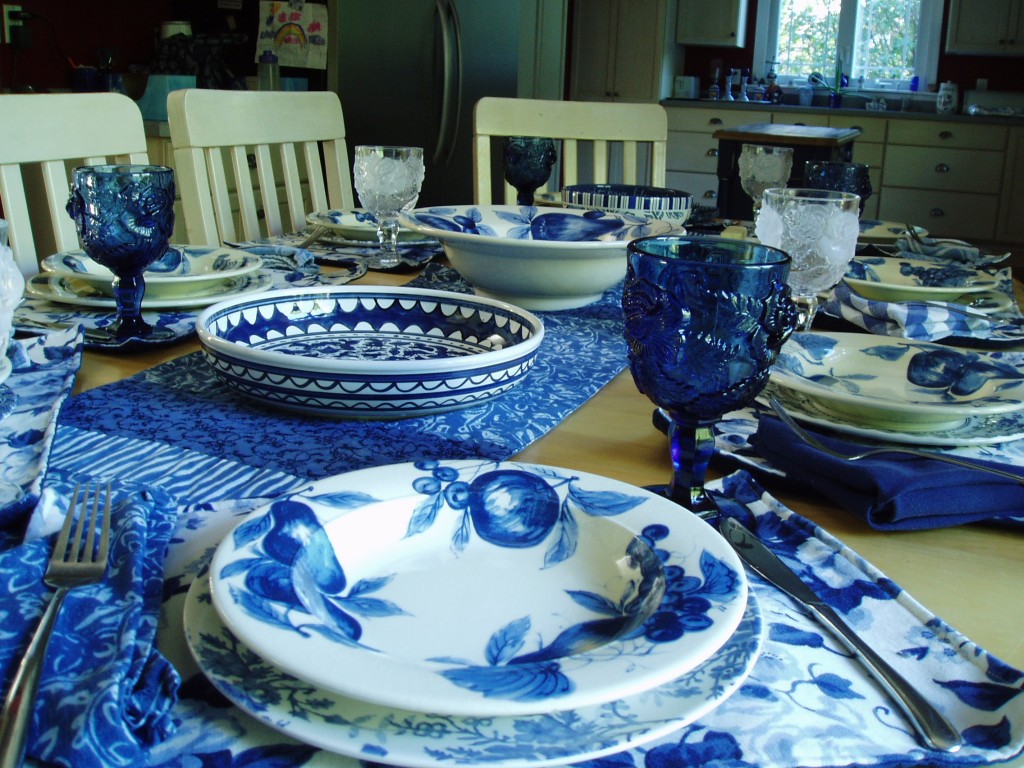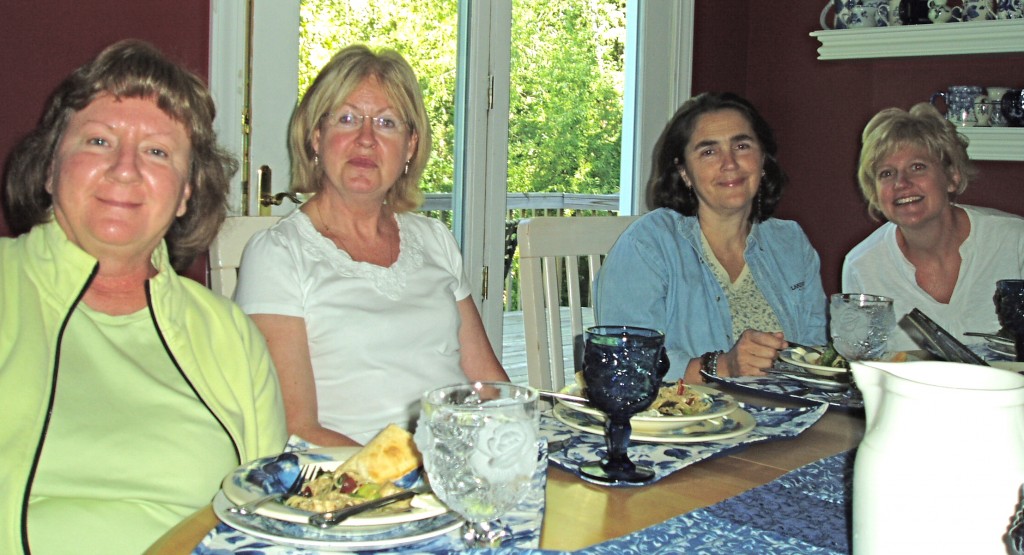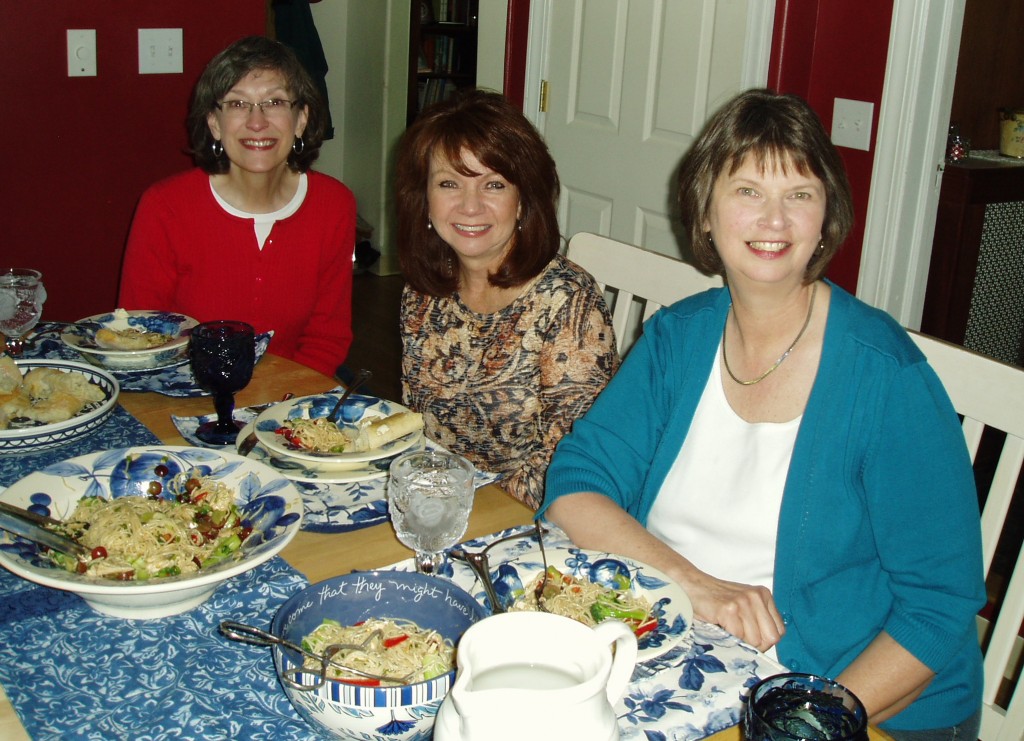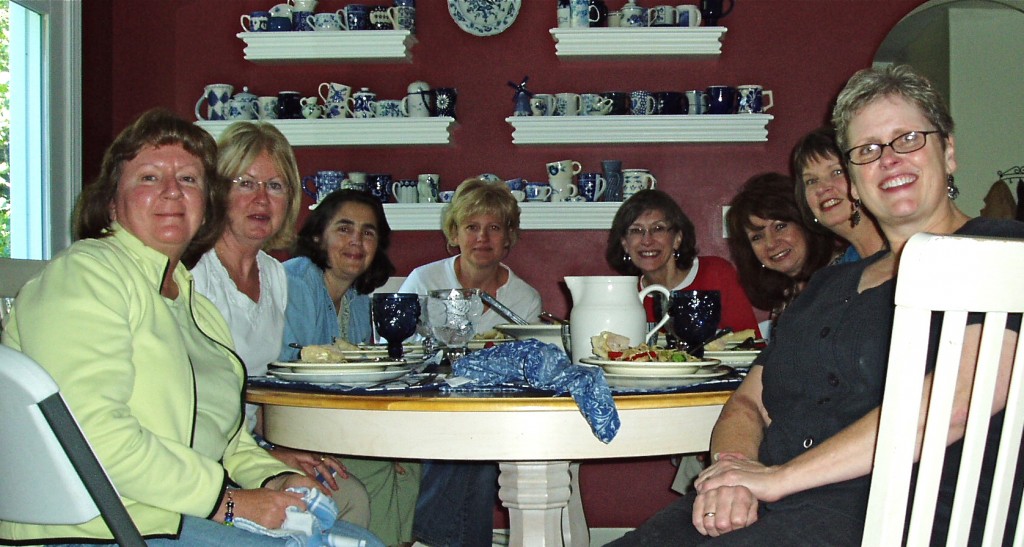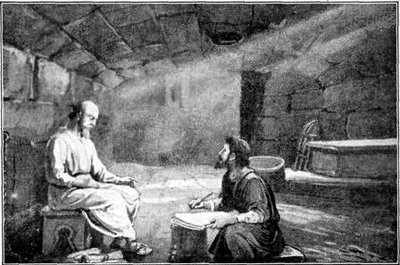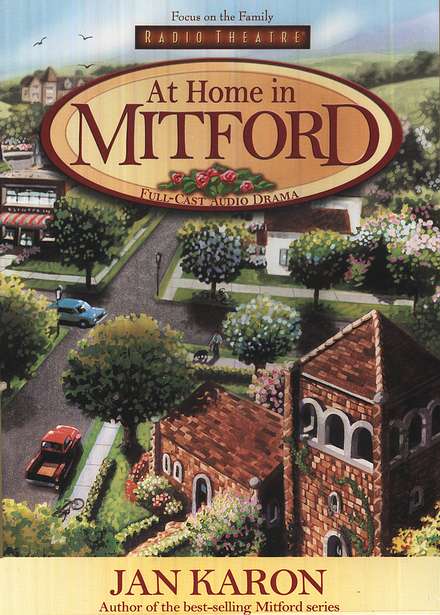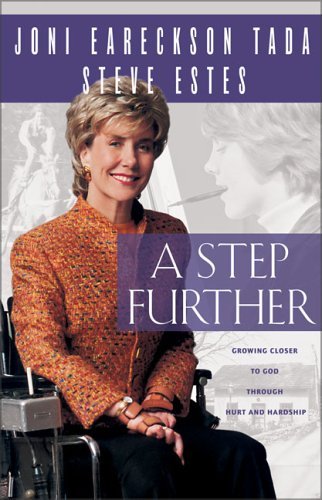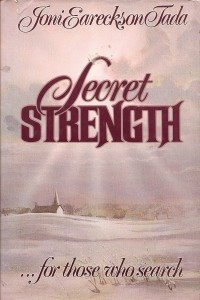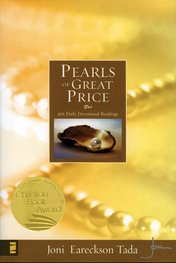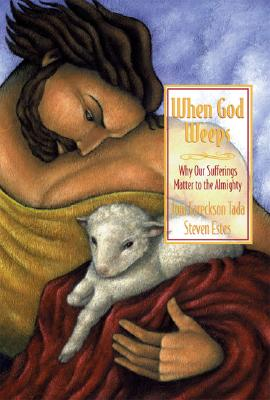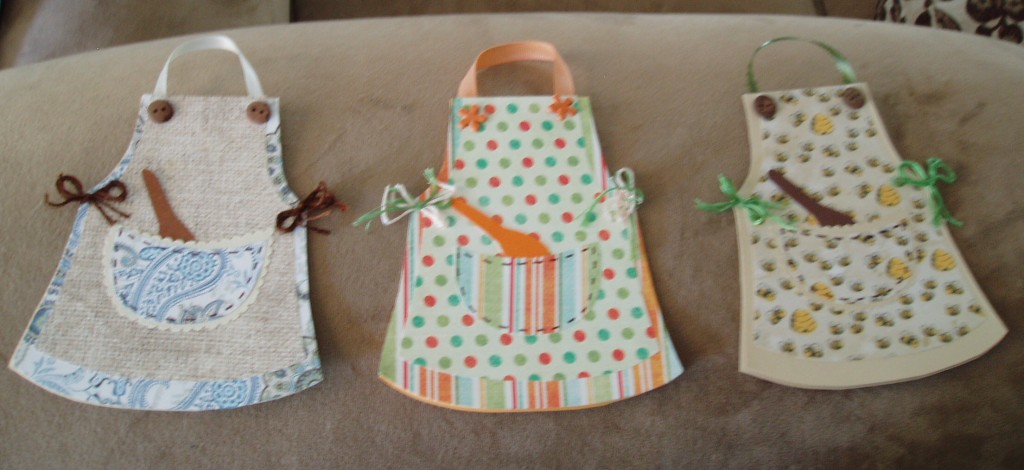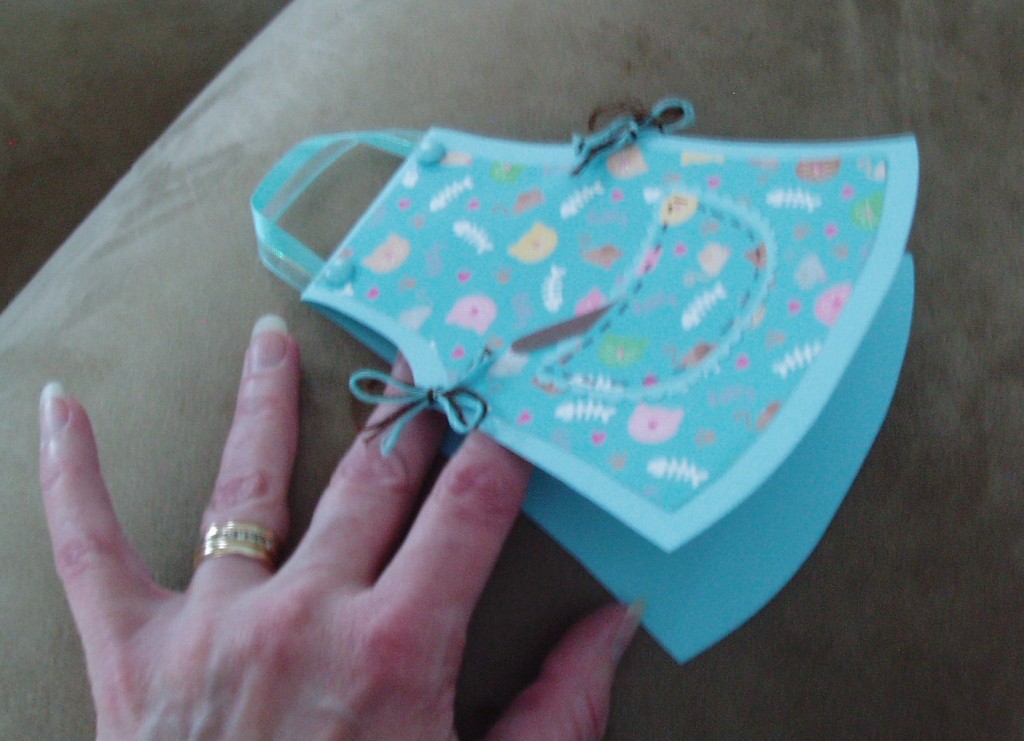Anticipation
August 30, 2010 | My Jottings
Webster’s online dictionary gives this as one of its definitions for the word anticipation:
“the act of looking forward; especially: pleasurable expectation.”
Every summer for the past nine years, I have regarded Tuesday mornings with an “act of looking forward, with a pleasurable expectation” of what would take place in my home.
I have been blessed to have a delightful group of women grace my home each week for nine summers in a row. I joyfully anticipate their arrival and their presence. I anticipate their hugs, their words, their prayers, their smiles, their friendship.
In anticipation of my friends arriving each Tuesday morning at 8:45, I try to prepare our house to receive them. Our den is where the television is (which is needed for our Bible study DVD), and it’s a small room, so I bring in a few folding chairs to provide enough seating for nine.
When our study ended in mid-August this year, I prepared a simple luncheon in anticipation of some final time together around the table, enjoying each others’ company, breaking bread together, and talking about what we learned (and hope to apply) from our eleven week study.
In anticipation, I set the table in my mismatched blue and white plates and napkins and bowls and glasses. You can’t tell from the photos very well that underneath the bowls, each plate is different. They’re all blue and white, but some are old and were gifts, some are chipped and have been part of our family’s dining for thirty years, some are English and purchased off of ebay, some are trendy and nicely painted and more pleasing to the eye. Sort of like people. At first glance this table may look fairly uniform – it’s all blue and white. But if you had been there and could have closely observed, you would have seen that there was a lot of variety and each piece has its own history.
There are pieces are from Israel, some from The Madonna Inn in San Luis Obispo, California, some were gifts from my mother, some came from Holland, some from estate sales, some handmade items were from an old friend I haven’t seen in years. I like how they all go together, but aren’t the same at all.
It’s how we all are. If we can find a way to serve side by side and enjoy how we’re made and the unique and individual beauty we each bring to the table, a feast is there for the taking.
Above, from left: Sharla, Fiona, Lorna and Kay.
Above, from left: Laurel, Lana and Sue. Deb wasn’t able to be with us for our last gathering and she was dearly missed. 🙁
Grocery shopping was done in anticipation of my friends sitting at my table for a meal. The firmest grapes were purchased, as was the only brand I like of seasoned rice vinegar. Ginger and some of my favorite French loaves were picked. The chicken was poached in simmering water with some cider vinegar added to it, the fresh basil was coarse-chopped, the red bell peppers julienned, the broccoli blanched for one minute, and I finely minced the garlic as I pictured the fellowship around the table.
We had simple but flavorful fare — Spicy Grape Pasta Salad with Basil and Ginger, torn pieces of hot French bread and butter, and a dense dark chocolate cake with my mother’s peanut butter and chocolate frosting for dessert.
In anticipation of these beautiful women being in my home, I prayed and asked Jesus to join us here, to grace us with His presence, help and direction as we studied Isaiah and put our minds on Him. I asked Him to help us all live out the message of our study and to break free from the things that keep us from all He has planned for us.
In anticipation of next summer, I ask the Lord what He would have us study next year. I will try to listen well, and choose the one that will again have us all sitting at His feet, humbly asking for His touch and strength.
Lord, will you bless Sharla, Fiona, Lorna, Kay, Laurel, Lana, Sue, Deb and me today? Give us whatever we need to love you more, to trust you more fully, and to walk with you more closely. Thank you for the privilege of reading your Word, of gathering together in your name in freedom, and of the bounty you place on our tables. Touch each woman today in your own special way, Jesus. In your name I ask this, Amen.
In Search of Freedom
August 27, 2010 | My Jottings
Warning: this is a longish post.
* * * * * * * * * *
“What’s in a name?”
Shakespeare’s Juliet asked that question, implying that a person’s name should not be of enough importance to determine their destiny. In ancient times, there was great significance in a person’s name. Children were often named according to what their parents hoped they would be. Their names represented their destinies. Or they were named according to where the family was geographically located when the birth occurred, or according to what was going on in their lives at the time. If I had named my girls like this, their names would have been Yarnista, Germany and Honeymoon. In our culture we usually just choose names we like that sound good with our last names. We do look at the meanings of the names we give our children, but often what a name means is secondary in importance to how it sounds to us.
Have you ever read Philemon? In the short book of Philemon in the Bible, I have learned that Onesimus the slave had a name with a very significant meaning. His story is all tied up in his name.
There are only 335 words in the original Greek text to the book of Philemon, but it’s a wonderfully rich book. The issues of physical and/or spiritual freedom are threaded all throughout. Forgiveness is another strong theme in this little book, and the implication of the “what’s in a name?” theme is worth looking at as well.
I. Greetings from a prisoner — Philemon 1:1-3
“Paul, a prisoner of Christ Jesus, and Timothy our brother, to Philemon our dear friend and fellow worker, to Apphia our sister, to Archippus our fellow soldier and to the church that meets in your home. Grace to you and peace from God our Father and the Lord Jesus Christ.”
Did you notice that Paul didn’t say in essence, “Dear Philemon, this is Paul here, a prisoner of Rome.” He said, “I’m a prisoner of Jesus Christ,” which shows that Paul completely trusted every single thing that happened in his life to be from the hand of God. If he was in chains, it’s because God allowed it, or even decreed it. Paul wrote this letter somewhere around 60-61 A.D., and this was his first imprisonment. This was not the second and last time he was a prisoner of Rome, when Paul knew his execution was near. This incarceration was called house arrest, and Paul was waiting for his court appearance because he had appealed to Caesar. He lived in a small house for two years, and he was able to receive visitors. In Philippians 1:12 Paul tells us that his chains actually advanced the gospel. We don’t know if he was chained to the wall or to the floor, or chained to a Roman guard.
Paul had served and loved the Lord for so long, was so completely swallowed up in living God’s will, he didn’t miss an opportunity to speak fervently to anyone about meeting and knowing Jesus. It’s doubtful that any person could have spent any time at all with Paul and not have been deeply touched by the Spirit of the Lord. In fact, II Corinthians 3:17 says, “…where the Spirit of the Lord is, there is freedom.” So even though Paul didn’t have his physical liberty, I believe by that time he was one of the freest men to ever live. And anyone who spent any amount of time with him would have sensed and envied that freedom. Including his captors.
So this letter is addressed to Philemon, Apphia, who may have been Philemon’s wife, and Archippus, who might have been their son. Philemon and his family were wealthy Asiatic gentiles who lived in Colassae, and as most people of worth did in that area and era, they owned slaves. The letter from Paul to Philemon was probably “mailed” at the same time as the letter to the Ephesians and the one to the Colossians. Tychicus was the postman and Onesimus accompanied him after spending a very momentous time in his life with Paul the apostle.
Paul had most likely met Philemon in Ephesus, which was about 100 miles from Colassae, and Paul led Philemon to a saving faith in the Lord Jesus while there.
For the first three centuries after the death and resurrection of Christ, the church met in different homes, and one of the fellowships in Colossae met in Philemon’s spacious home. The main reason why Christians met in homes was because of the persecution factor at this time. They had to meet in secret. Their lives were often at risk as they followed Jesus. They may have had to sing and worship in whispers.
In the last verse of this greeting, Paul expresses to Philemon and to the others who will read this letter(that’s us), what he wants for them most, and he says, “Grace to you and peace from God our Father and the Lord Jesus Christ.” He has expressed this to recipients of his letters many times before. When Paul wrote to the Romans he said, “Grace and peace to you,” in his letters to the Corinthians he said “grace and peace to you,” to the Galatians, the Ephesians, the Philippians, the Colossians, the Thessalonians, he wanted them to have grace and peace from God the Father and Christ Jesus our Lord. He wished the same for Timothy and Titus, and here he was saying how much he wanted Philemon and any others who read that letter to have grace and peace.
Paul used words purposefully, so we can be sure that grace and peace are not just Paul’s way of saying, “God bless you all.” When Paul declares that grace and peace are what he wants people to have from God, there’s deep meaning there. Grace was always listed first in Paul’s greetings. He never said, “Peace and grace to you.” What difference does that make? Well, he knew better than almost anyone that peace doesn’t come without grace coming first. Grace, which means “unmerited favor” also carries the picture with it of God “stooping” or “bending low” to us in His great love. He did this by sending His son Jesus for us, to die in our place for our crimes against Him and humanity, and this is what grace is all about. So even in the order of his words, Paul is reminding us that we can’t have peace with God, or peace from God, unless we have first experienced the grace that God gave us through His Son. So it’s grace and then peace.
And Paul, though chained, beaten, starved, mocked, deserted and hated, knew God’s grace and peace well. He knew that there was nothing more important than accepting God’s grace through trusting His Son, and receiving that peace that passes all understanding. Grace and peace. I love it when we can find an entire volume of powerful truth in just one phrase in the Bible. We don’t always need to devour huge portions of the Bible to be instructed and fed, although there are appropriate times for taking in large amounts of scripture. Sometimes we need to allow the Holy Spirit to lead us to one verse, one phrase, and ask Him to illuminate that to us and what it means personally for our lives. And then ask the Lord to help us meditate on it all day long, all week long, ask Him to help us mine the riches that are hidden for those who will search. So one of the treasures from these three “little” verses is that peace does not come without grace. If we open our heart’s door to the grace of God through Jesus Christ, peace floods. That peace is available to us every day of our lives and is not contingent on whether or not we are going through trials and hardships.
II. Praises for a beloved friend — Philemon 1:4-7
In verses 4 through 7 we see Paul praising Philemon – he thanks God for the kind of man he is, and the love he has shown for people. Verses 4- 5 say “I always thank my God as I remember you in my prayers, because I hear about your faith in the Lord Jesus and your love for all the saints.” Paul must have had an incredible prayer list, because he was always praying for many people individually and for groups of people. But Philemon stood out in Paul’s mind as the kind of person who caused him to say “Oh thank you God!” each time he thought of him.
Do you have anyone in your life like that, someone who is so special and so loving that just the mere thought of them brings tears of thankfulness and an exuberant “Thank you God!” to your lips? I do. Her name is Dorothy.
Dorothy is my step-mother, and she and my dad were married for many years until he died in November of 2007, in San Luis Obispo, California. Dorothy lived her life to love my dad, and she blessed our family many times.
My parents suddenly divorced after 31 years of marriage when I was 14 years old. It was devastating to our family, but that is another story. Years later my father met and married Dorothy, whom I want to say, was not the cause of my parents’ divorce.
When my mother (who had remained unmarried) lost most of her vision and could no longer care for herself, my husband and I prepared to move her close to us in Minnesota. Her house in Morro Bay, California sold, and then she fell ill and required surgery and a lengthy hospital stay. Mom’s house was packed and then occupied by the new owners while she was still very sick in the hospital. She was too ill to move to Minnesota right away, so when she was released from the hospital she had no place to go. I considered flying to CA and renting a hotel room for a few weeks so I could care for her until she was able to move back here.
Right about this time, my dad’s wife Dorothy stepped in. She’s a committed Christian and reminds me of Philemon. Her personality is one of love, encouragement, humble servant-hood and grace. She announced to my mother (who barely knew Dorothy at the time, and wasn’t anxious to know Dorothy since she was my dad’s wife), to my dad and to our family, that my mom was coming to live with them and she would care for my mom.
“Oh, no I’m not,” my mom said.
“Thank you, Dorothy, but we can’t let you do that,” is what Michael and I said.
And what my dad said was “Oh. My. Gosh.”
Dorothy — gracious, meek, and not known for her forcefulness, insisted, and my mother, my father’s first wife, moved in with my father and his new wife. My mom couldn’t see well, couldn’t change the bandages from her surgery, had become incontinent and had to sit on towels that had to be laundered constantly, had lost her taste for most food and could only tolerate some things. Dorothy lovingly cared for my mother for weeks. She changed her bandages, washed what my mom called her pee towels, cooked the same things over and over for my mom, and did it in such a way that made my mom feel like it was the most wonderful thing that had ever happened in Dorothy’s life.
Dorothy’s love for my mother built the foundation for a Christian friendship that lasted until my mother’s death eight years later. They regularly talked on the phone, told each other they loved each other, and my mother grew in Christ because of Dorothy’s witness to her. Dorothy’s tender care for my mother softened my father’s and mother’s hearts for each other, and even though I don’t believe divorce was God’s will for them, they were friends from that point on. When my mother died eight years later, my father mourned. Dorothy’s love for my mom brought me to my knees in tears and gratitude, and to this day when I think of her or pray for her my first thoughts are “Oh thank you God! Dorothy has been such a gift from you to our family!”
In verse 6 Paul told Philemon that his prayer for him was that he would be active in sharing his faith, so that he would have a full understanding of every good thing he had in Christ. There is something about saying out loud what Jesus has done for us that opens our eyes to understanding even more of the mercies He’s given. Verse 6 implies that when we share our faith, our eyes are opened to the other things God has done for us aside from giving us salvation, as if that wasn’t enough. When we share our faith, we may not feel totally equipped to speak knowledgeably about many of the things skeptics ask, but we can always share what Jesus has done for us. We can say “This is what my life was like before Him; this is what my life is like now.” That is sharing your faith.
Paul continues in verse 7 – “Your love has given me great joy and encouragement, because you, brother, have refreshed the hearts of the saints.” This word refreshed means “to give rest to.” Dorothy will always be one of my greatest examples of someone who has refreshed, or given rest to, other believers. This might be a good time to pause and ask ourselves, “Do I drain people, or do I refresh them?” I know what I want to do.
So Philemon had an outstanding reputation. He was known throughout the scattered church of Jesus Christ as a man of love, a man who generously gave of his time and belongings to others, and a man who was compassionate and helpful. His character was strong and noble.
III. An appeal for a new man Philemon 1:8-11
But the Philemons and Dorothys of this world aren’t immune to sin just because they do so much good. Paul knew this, so he broached a potentially unpleasant subject to Philemon. In verses 8-11, Paul gets to the thrust of this letter, and that was to talk to Philemon about his runaway slave, Onesimus. Now, slaves were the machines of their day. It is estimated that there were about 60,000,000 slaves in the Roman Empire, out of a total population of 120,000,000. (Thankfully, slavery is now seen as the horror it really is, but it was quite the norm for the Roman Empire.)
Paul says to Philemon in verses 8 and 9, “Therefore, although in Christ I could be bold and order you to do what you ought to do, yet I appeal to you on the basis of love.” Paul was an apostle, a sent one with great authority. On the road to Damascus when he was still a Christian-hater, he had literally met Jesus Christ in His fully resurrected state. Paul had been apprehended, corrected and commissioned by Christ and the course of his life changed forever. He could have authoritatively told Philemon to welcome Onesimus back into his home, to forgive him and restore him, but instead he tactfully appeals to Philemon on the basis of love.
Do you know what I thought of here? I thought about Paul’s conflict with Mark years earlier. Early on Paul had a strong, arrogant, personality. When he was knocked to the ground and temporarily blinded by Jesus Christ, some of those traits may have been tempered. But not all of them. It took years of walking with the Lord and doing His will to completely soften Paul. He had no patience with Mark when he had deserted Paul and Barnabas and hadn’t continued with them in the work they were doing. The Bible says they had a sharp disagreement and parted company. This is Bible terminology for “Paul stomped off in a huff.” But 12 years later, after being imprisoned for two years and enduring almost unbearable hardship and untold blessing as an ambassador of Christ, Paul’s heart was soft and submitted to his Lord. It’s good to think that Mark might have been Paul’s inspiration for seeking restoration between Philemon and Onesimus. The old Paul might have said “Philemon, do as I say!” The sanctified Paul appealed on the basis of love, which came from his own personal struggles. He had learned a more excellent way.
The second half of the book infers that very likely Onesimus also stole from Philemon. He was a household slave who would have known where things were kept, and when he decided to go in search of his freedom, he probably took money or other items of value in order to sustain himself for the weeks it took to reach Rome.
Philemon and his family had been wronged. They had much to forgive. If he was the loving man Paul says, he surely must have been a kind slave-owner. Onesimus was probably well-treated and provided for, yet we can see in his fleeing a picture of our own selves: we have been given life and provision and whatever we need from our generous God, our “owner,” yet often each one of us takes it all for granted and we wander away from Him, in search of the kind of freedom and things we think we need.
Many commentators said that in this book we can see Paul as a mediator, obtaining mercy and restoration as Jesus does for us. That we can see in Philemon a picture of God – wealthy, gracious, loving, yet misunderstood and wronged. And in Onesimus we can see a picture of ourselves, always thinking that freedom is on the other side of the hill, thinking that what will fulfill us is something which can be possessed, instead of something that happens in our hearts. In him we see our own sinful natures. Martin Luther said “We are all Onesimuses!” We have disregarded our Master’s kindness and selfishly go off in search of freedom, not realizing that true freedom is found in Him alone. I need to remember that where the Spirit of the Lord is, there is freedom. But Onesimus had not learned this truth yet.
And Philemon could have slipped easily into his own form of slavery had he not been willing to forgive. If we don’t forgive, we open the door to all sorts of evil, and hinder fellowship with the Lord. Paul the Persecutor became Paul the GreatHeart by the transforming power of God, evidenced by these words he wrote to us and the Ephesians around the same time as his letter to Philemon: “Be kind and compassionate to one another, forgiving each other, just as in Christ God forgave you.” Time does not heal bitterness and resentment. Sometimes we are hurt so deeply that the work of forgiveness has to be done over and over again, but we must keep at it or we will be slaves to the cruelest kind of master.
In verse 9 Paul also mentioned again that he was a prisoner, not of Rome, but of Jesus Christ, and that he was now an old man. He was probably about 60 years old at this time, in an age where the average life-expectancy for a man was about forty-five. As we know, Paul had been shipwrecked, beaten and left for dead, had probably experienced many broken bones and serious head injuries, had been malnourished. The toll his life had taken on his body must have made him seem even older than his sixty years. He was weary in body, but buoyed up in spirit, because there in that place of imprisonment, there with the clanking chains around his ankles, the Spirit of the Lord was present. So there was liberty.
What were the odds that Onesimus would flee from the household of Philemon in Colassae, travel over 1000 miles on land and sea to Rome, a city of approximately one million people, and find Paul there among the masses? It could have been that Onesimus didn’t intend to run into Paul, or it could have been that the Holy Spirit was working on Onesimus the entire time in his search for freedom, and by the time he reached Rome he set out to look for Paul. Onesimus may have heard Paul’s name mentioned in Philemon’s house or he may even have met Paul in Ephesus when he was there with Philemon. Whether or not he had ever met him, whether or not he was intentionally trying to find Paul, the Spirit of the Lord propelled Onesimus toward real freedom when he guided him to the place where Paul was chained and under house arrest.
Verse 10 says “I appeal to you for my son Onesimus, who became my son while I was in chains.” Paul only called three people sons: Titus, Timothy and Onesimus. We don’t know how much time Onesimus spent there with Paul, but it was sufficient time for him to see what real freedom looked like. Paul was in chains yet was truly free — his search for freedom ended on the road to Damascus. Onesimus’s search for freedom ended next to his spiritual father Paul, in a rented house in Rome. Once he realized that true freedom is a destination of the heart, he knew he had to go back and humbly ask forgiveness from Philemon and his family.
Let’s segue a bit and take a look at what Paul possessed while in chains, versus what Onesimus had, once he had supposedly secured his freedom. In just 11 verses, we can see that Paul’s chains didn’t hinder him from possessing grace and peace, gratitude, a magnificent prayer life, comfort, a few loyal friends who ministered to him, heartening news of God’s work in others, spiritual authority and boldness, powerful influence, humility, compassion, mercy, and concern for the lost. In chains, Paul knew encouragement from a friend’s love toward others, had a productive awareness of who he had been and who he was then, he had the ability to see promise in someone that others would have considered the dregs of society, he had the gift of relinquishment, love, and of course, the freedom found because the Spirit of the Lord was there with him. And Paul had the honor of being imprisoned for the King of the Universe.
Let’s take a look at what Onesimus had after he ran away in search of freedom: he may have had greater physical freedom, but what probably constituted Onesimus’s life on the run were loneliness, misery and guilt. Whatever pleasures he found after he left Colossae were short-lived.
The word slave in the Greek is doulos, which means one who is in servitude to another, his will being altogether consumed in the will of another. Paul called himself this kind of slave. His will was altogether consumed in the will of Jesus Christ, and in that state he found his freedom.
Onesimus eventually learned that staying in Rome or going back to service as a slave in Colassae had little to do with experiencing liberty. With Tychicus as his traveling companion and new brother in the faith, he returned to Colassae, holding tightly to the letter from Paul and praying that he would be forgiven.
Remember that crucifixions were common in the Roman Empire and it is almost certain that Onesimus had seen criminals executed this way. The common punishment for thieves in that day was death on a cross. Jesus died between two thieves. This may have well been uppermost in Onesimus’s mind – will I be forgiven or will I get what other thieves and runaway slaves get? We might be tempted to think that because of Paul’s description of Philemon’s love and glowing character, Onesimus’s restoration was a given, but if Paul had to write such a strong appeal, I don’t think we can know for sure. The Philemons and the Dorothys of this world are not perfect. They, like all of us, need reminders on how crucial it is for us to forgive.
The wrong that was done to Philemon, the property that was taken, may have been a huge amount that crippled the household financially. But in his appeal, Paul asked Philemon to be kind and compassionate to the repentant Onesimus, forgiving him; just as in Christ Jesus God had forgiven Philemon.
At the end of this short passage in Philemon, Paul says, “formerly Onesimus was useless to you, but now he has become useful both to you and to me.” Onesimus is the Greek word for “useful” or “profitable.” Obviously someone who steals and rebels is not useful. But this play on words beautifully implies that by coming to the Lord Jesus Christ, by bowing his knee and will to his real Master, Onesimus was finally true to his name. He became useful, profitable, not just to Paul, but would be to Philemon too.
So, what’s in a name? In Onesimus’s case, much.
What’s in your name? What does your name mean? I looked up a few. If your name is Kathy or a form of Kathy – like Carey or Kay, your name means pure one. If you are in Christ, you have been washed completely clean…He has restored your purity and He can make you true to your name.
Beatrice – your name means she who blesses. Before Christ you were under a curse, but in Him you bless others.
Susan? One who trusts. Your destiny in Him is to fear not, and trust Christ with reckless abandon.
Lois? Your name means famous. You may have been relatively unknown before you came to the Lord, but as you walk with Him and are transformed into His image, your reputation in Heaven will be legendary.
Phyllis? Your name means lady. I don’t know what characterized your life before Christ, but in Him you are clothed in strength and dignity.
Carol? Did you know your name means joyous? No matter what kind of sadness and mourning you’ve seen, in Jesus Christ you can still rejoice in His hope and promises.
Chris, Kristi or a form of Christine? Your name is rooted in one faith – faith in Jesus Christ, and you are His namesake.
My own name means youthful. As I watch my fingers bend in different directions and see my eyesight fade, I take comfort in the fact that in Him, age doesn’t matter. The slower and grayer I become, the closer I will get to being with the One I’ve waited for my entire life.
And can I tell you what the name Dorothy means? It means Gift of God.
Who can transform a person into the meaning of their name? Who could make “useless” Onesimus useful? Who can make a person a blessing who was once under the curse? Our Savior.
Who can make an impure, corrupt person pure? Jesus.
Who can make a mourner joyful? Jesus can.
Who can help a fearful one trust? Who can make the unrighteous righteous? Jesus Christ alone.
The search for freedom is a journey every human takes, and those who become slaves or prisoners of Jesus Christ are the ones who find liberty in the truest sense of the word.
When Onesimus came to faith in Christ, he gained the most important kind of freedom, and he became true to his name. When we come to faith in Christ, we are invited and enabled to walk in that same freedom no matter what our circumstances, and even if our given name doesn’t mean something beautiful, that name is written down in the Lamb’s Book of Life, which gives it the most beautiful meaning of all.
Edition 44-Wednesday’s Word
August 25, 2010 | My Jottings
Could we with ink the ocean fill,
And were the skies of parchment made,
Were every stalk on earth a quill,
And every man a scribe by trade;
To write the love of God above
Would drain the ocean dry;
Nor could the scroll contain the whole,
Though stretched from sky to sky.
From the hymn “The Love of God” by Frederick Lehman, 1917
* * * * * * * * *
Winner’s Choice!
August 24, 2010 | My Jottings
There were six people who left comments describing themselves using alliteration – their answers were fun to read!
I used random.org to pick a winner, and the number six came up, which means Christy is our winner. This time I’m doing something different with this giveaway. I’m going to let Christy choose one of two prizes for her winning, warm and waggish answers.
This set of CDs is a wonderfully done radio theatre drama of the book At Home in Mitford by Jan Karon. I have listened to this whole production several times myself (although this set is brand new and unopened) and it’s a thrill each time I hear it. If you’ve read the Mitford books, this will not disappoint.
It’s not a book on tape — it’s an acted-out production with music and phenomenal sound effects, and there are some famous people who lend their voices for the characters.
Michael and I have listened to this in the car and even though he hasn’t read the series, he enjoyed it too. The running time is six hours and 36 minutes.
Or Christy can choose a new copy of this book that I just finished:
The Book of the Dun Cow by Walter Wangerin, Jr. I had read two of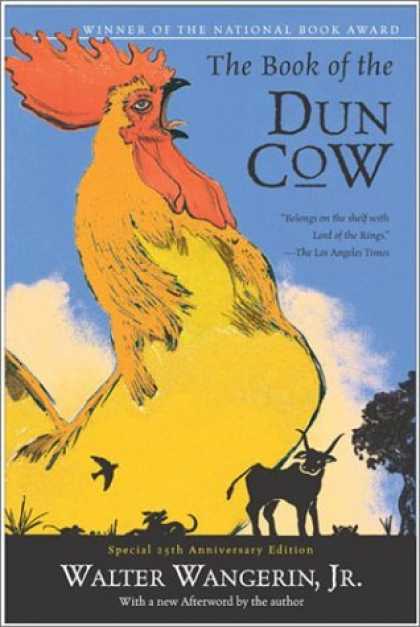 this author’s other books and enjoyed them (The Book of God and Paul), but I just recently heard about this one. If any of you have read this one I’d love to know what you thought.
this author’s other books and enjoyed them (The Book of God and Paul), but I just recently heard about this one. If any of you have read this one I’d love to know what you thought.
I don’t even know how to describe this book. I couldn’t put it down. I’ve never read anything like it. I was riveted. Stunned. Repulsed. Amazed. Engrossed. Moved. Enlightened. Encouraged.
So now it’s up to Christy to choose between the Mitford CD set, which is wonderful, or The Book of the Dun Cow, which is unforgettable in its own way.
Christy, please make your choice in the comment section and tell us what your choice is and why. Then I’ll mail it out to you right away!
Thank you all for leaving your alliterative descriptions!
Blessings,
Alliterative Analysis
August 20, 2010 | My Jottings
I like alliteration. You might find proof of that by looking just left of these words to see the titles of some of my recent blog posts. Most of you know that alliteration is the use of the same letter or sound at the beginning of adjacent or closely connected words. “The more the merrier” and “blind as a bat” are a couple of common alliterative phrases. “The fickle finger of fate made sure the dragonfly was dead as a doornail” is another alliterative example.
For some fun on the blog I’m going to ask you all to describe yourself in at least two words, preferably three, using alliteration. So you might say you are friendly and fearful. Or bubbly and brave and bold. Or lanky and lazy. Or intrepid, insecure and independent. Or mean, malevolent and menacing. Actually, if you are mean, malevolent and menacing, please read no further and just close this blog and quietly turn off your computer now. Thank you.
There might be a bloggy giveaway contest connected to this post. You won’t win anything if you don’t do a little fun alliterative analysis of yourself. You might win something if you do.
I’ll play along too, although I’m not eligible to win a prize. (How weird would that be to award myself my own prize? We have a winner for my blog’s bloggy giveaway, and it’s me! Thank you all for entering, but none of you won….I won! On the day something like that happens here, that will be your signal to start praying for me in earnest.)
Anyway, choose any letter you like to begin your words. I’m choosing the letter C to describe myself in three words (one slightly positive, one slightly negative, one fairly neutral):
Capable
Curious
Controlling
Can you guess which one is the slightly negative one? If not, you could call my husband Michael and he might be willing to help you figure it out. 🙂
When I was a little girl I think my parents, if they were giving their analysis, would have said I was:
Bookworm
Bossy
Bespectacled
Bony
*Sigh*
Now it’s your turn! What two or three (or four!) alliterative words would you use to describe yourself? Comments will be taken until Tuesday morning and the winner will be announced later that day.
Get going, you gracious and gifted guys and gals!
We’re being watched
August 17, 2010 | My Jottings
There are some authors whose books I’ve loved so much, I would never need to read reviews if any new works of theirs were published. I would just automatically buy the new book and read it, and know it would be something I would go back to time and again.
Joni Eareckson Tada is one of those authors for me. Not only is her life story compelling, but she’s an extremely gifted writer. When she talks about God being faithful and sufficient for any trial in life, I believe her. I think she’s authentic and mightily used of God to speak to our generation and the next.
Joni became a quadriplegic as a teenager when she broke her neck in a tragic diving accident over forty years ago. She thought a meaningful life or any hope of one was completely over, and in her despair she tried to enlist people to help her commit suicide, since she didn’t have the use of her hands and couldn’t take her life on her own.
Forty-three years after losing the use of her hands and legs, Joni has written thirty-five books, runs a ministry that ministers to the forgotten people of the world, and speaks to anyone who will listen about the beauty of knowing Jesus.
Here are a few of my favorites from her books:
I remember reading A Step Further and having many of my questions answered on the subject of suffering and God’s will.
Diamonds in the Dust – Joni’s devotionals are always rich and beautifully written. Never fluffy, but weighty and profound.
Heaven – Your Real Home was the first book I ever read that made me see heaven in a different way. For anyone who has ever thought heaven would be boring or ethereal or like the stereotypical scenes we see in movies, this book will help.
I have a vivid memory of reading When God Weeps and sobbing in gratitude and relief as I worked my way slowly through the book. Anyone who suffers or knows of people going through intense suffering will find amazing comfort in this book.
The God I Love is Joni’s memoir and I was so uplifted from reading it. She has learned of God’s help and faithfulness one moment at a time and her words are like water in a desert, for dry and thirsty souls.
When I heard recently that Joni had been diagnosed with breast cancer I was stunned and sad. We receive her monthly newsletter and here’s some of what she wrote about her illness:
“By now you’ve heard that a month ago I underwent surgery for breast cancer. Yes, it’s a shock, and some wondered, quadriplegia…chronic pain…now cancer? Isn’t that a bit much? Yes, it’s a lot…
…something else inspires me. Ephesians 3:10: ‘It’s now God’s purpose that, through the church, His manifold wisdom should be made known to the powers and principalities in the heavenly realms.’ Translation? With this cancer, my life is on display; yes, before family, friends, and disabled people around the world.
But mostly, my life is on display before millions of unseen beings who are intensely interested in my response to cancer. It’s why you’ll often find me quoting The Apostles Creed out loud these days, or reciting verses long-memorized, or singing (or speaking) as many stanzas of hymns that I can remember. I have to do this – it’s the only way (the best way) to keep this cancer in perspective.
My husband, Ken, and I are in a cosmic battle and we are heaven-bent on making certain the unseen world (in front of which we are all on display) learns a thing or two about our great and wonderful God.”
Wow. Joni can’t even scratch her own itches or care for her most pressing and personal needs by herself. And she still wants to make sure the unseen beings see that she thinks her God is great and wonderful.
Have we all forgotten that we, too, are being watched? Of course as believers we know that God watches over us and that nothing is hidden from Him. But I wonder how I might behave if I actually remembered that there are beings (angelic and demonic) who are either watching and cheering for me, or watching and mocking, as I live out my life in Christ. What do my words and veiled looks and exasperated sighs and any of my actions say about God to them?
If I roll my eyes and sigh because I’m weary of not being able to understand my husband’s words due to his Parkinson’s, who in the unseen realms is gleeful over that? If I say, “Oh what’s the use?” and walk away from prayer because the obstacles seem so huge, which invisible beings would be clapping their hands and redoubling their efforts against me? If I am tempted to be abrupt and mean and stingy, do I even remember that not only does God see, but His enemies see me misrepresent His love and goodness to the world? Do the demons rejoice over my ingratitude and pride?
On the other hand, when we get down on our knees for the umpteenth time to ask in (even feeble) faith for something we haven’t seen come to pass yet, we are being cheered on by great clouds of witnesses we cannot see (Hebrews 12:1-2). When we respond in patience and kindness instead of the sharpness and sarcasm someone might deserve, we really are thwarting the enemy’s work in our lives. When we humble ourselves and ask for forgiveness when we know we’ve hurt someone, something happens in our souls and in the heavenly realms that truly is cosmic and important…perhaps something we’ll only understand on the other side of eternity.
Do we not think that praising God, being as faithful as we know how, walking in humility toward our family and friends, calling Him good even when He allows difficult trials in our lives, and loving others even when they’re hard to love, is of monumental, eternal consequence?
Joni Eareckson Tada reminded me that those in the unseen realms are watching to see if we really believe our amazing God is good, and worth serving and trusting. They already know He is (although the demons hate His love and goodness), but we have a chance to show we think so too.
We are being watched. What are those who are watching (whether seen or unseen) surmising about God when they hear our words and see our choices?
If there’s one thing I don’t want to be caught doing, it’s causing others to conclude by watching my life that I don’t love and trust my God.
Lord, please help me.
Heat, humidity and Farkle
August 12, 2010 | My Jottings
We live in a place with an average summer temperature of 75 degrees. I have always loved this about northern Minnesota. I think I must have reached my hot-weather-quota early on, growing up in the San Gabriel Valley of southern California, where it’s over 90 degrees for months on end. I’m not sure what has happened lately (I’ve got a call in to Al Gore) but our area has turned into a sauna and I’m getting a little irritated. It has been well over 90 degrees with oppressive humidity far too many days this summer. And we’ve had lots of torrential downpours rain. I can’t remember the last 75 degree day we had. And at night it doesn’t cool down much and the windows are all steamed up when we get up in the morning. We have been keeping our downstairs air conditioner on day after day, and have been sleeping to the grinding hum of a window a/c unit in our bedroom at night.
We talk about the heat and humidity several times per day, we check the forecasts for signs of hope, and we yearn for fall. No living in the blessed present here — we just want the blessed present to pass quickly and to turn into the cool fall weather we know and love.
But…I know I should be thankful we have air conditioners. And electricity. And that it’s not 106 degrees like it was a few days ago in Kentucky where my niece Savannah is attending college. Imagine going out on your porch at midnight and seeing that the thermometer still reads 100 degrees. When Savannah texted me about the 106 degrees I texted back to her, “Doom and despair!” because that is precisely what heat and humidity bring to my mind. I think if I have any major fear issues as I approach the ripe old age of 53, I am afraid of heat. I have thermophobia.
Speaking of fears, Clara went to church with us on Sunday and she loves the kids’ program called Cross Kids. Their lesson was on loyalty, and what it means to be loyal to Jesus (unlike Judas), and how to be loyal to friends and family. As we drove home Clara told us all about what she had learned and it was so sweet to listen to her. She also learned in Cross Kids what some different phobias are. I have no idea what loyalty and phobias have in common, but since Clara is taking after a few other people in our family and becoming a collector and dispenser of facts, she latched onto the phobia definitions and quizzed Grandpa and me on the way home.
“What do you think musophobia is, Grandma? Is it the fear of people, the fear of music, or the fear of mice?” We learned that the answer is C) the fear of mice. A river of mice could crawl across my bare toes as I sit and type this and I would not be as afraid as I would be if our local meteorologist said tonight, “Well folks, it looks like we’re going to be in for another few days of sauna-like weather.” That would put me over the edge.
So you will be relieved to know that right before I started this historic post, I checked the forecast and learned that by this coming Sunday we might be skipping giddily around outside in 68-70 degree temps. I might be able to feel human again, or open some windows, or turn on my oven, or stop playing my thermophobia card to anyone who will listen.
On a much more interesting note, I’ve been playing a fun game with Clara and Elijah lately — it’s called Farkle. Have any of you heard of it? I was quite surprised at how taken they both were with it, and how giggly and animated they were while we played.
 The object of the game is to be the first one to get 10,000 points. You roll six dice, and the main way of scoring is by rolling ones (100 points each) or fives (50 points each), or triplets of other numbers. If you roll three times and end up with no ones, no fives and no triplets of other numbers, you get a Farkle. That means no score for that turn, you’re done, and the next person gets to roll. Both Clara and Elijah thought it was hysterically funny when I said in my deepest voice possible with bulging eyes, “Faarkkllle!” You probably would not like Farkle if you have dice-o-phobia.
The object of the game is to be the first one to get 10,000 points. You roll six dice, and the main way of scoring is by rolling ones (100 points each) or fives (50 points each), or triplets of other numbers. If you roll three times and end up with no ones, no fives and no triplets of other numbers, you get a Farkle. That means no score for that turn, you’re done, and the next person gets to roll. Both Clara and Elijah thought it was hysterically funny when I said in my deepest voice possible with bulging eyes, “Faarkkllle!” You probably would not like Farkle if you have dice-o-phobia.
Last night Elijah spent the night and I enjoyed being with him so much. Even with a bad case of thermophobia, being with grandchildren always makes me happy. He’s getting his front permanent teeth in, and at times when he smiled I could almost get a glimpse of the handsome young man he’s going to be. He and I read, he played with Legos and built a ship he called the Merchant Royal, we played I Spy With My Little Eyes, talked about school and life, and played Farkle.
Today when Michael and I drove Elijah home, we stopped at Dunn Brothers to get smoothies for everyone first. Five strawberry smoothies, one wildberry smoothie, and one mango smoothie, to go. All with a little dollop of whipped cream on the top. We dropped Elijah off at his house and he was glad to give everyone their smoothies, and then Michael and I went for a drive in our air conditioned car before going back to our air conditioned house. My parents used to go for drives when I was a little girl and I always had to go along. I never understood why it was so enjoyable for them to drive by houses or the ocean going fifteen miles an hour while licking ice cream cones. Now I sort of get that. Which brings me to my possible developing case of gerontophobia. Just kidding.
We drove up the shore of Lake Superior a little ways, we drove by some new housing developments in some very wooded areas nearby, and we drove by our old house, which I still miss, but not quite as much as I did a year ago.
This coming Tuesday will be our last day of summer Bible study, and the women who have graced my home each week will be staying for lunch after our last session together. Last year I made Lemon Fusilli with Arugula for lunch and it was a keeper recipe. This year I’m thinking of Spicy Grape Pasta with Basil and Ginger.
Lastly, in this very random post, I just finished reading this book, thoughtfully sent to me by my dear niece Lauren in California. It was written 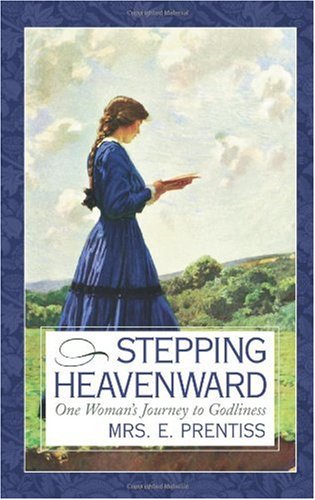 in the 19th century and spoke straight to my heart in 2010. I plan to start reading it all over again very soon — there were just too many wonderful parts of this book to absorb in one reading. It’s the kind of book I’ll keep on my nightstand to pick up again and again.
in the 19th century and spoke straight to my heart in 2010. I plan to start reading it all over again very soon — there were just too many wonderful parts of this book to absorb in one reading. It’s the kind of book I’ll keep on my nightstand to pick up again and again.
Next to read on the floor near my side of the bed are: Coop: A Family, a Farm, and the Pursuit of One Good Egg by Michael Perry, Cutting for Stone by Abraham Verghese, and The Book of the Dun Cow by Walter Wangerin.
What books are waiting near your chair or bed these days?
What phobias are you plagued with?
I know two people who are truly afraid of feet. Another who is terrified of earthworms. I know someone else who gets a visceral reaction to the word “moist,” and who freaks out if her potatoes have sprouted. I know several folks who are afraid of flying, and one who fears not always having something to do.
I’ll bet you all have some stories. Most of us do.
Someday I’ll write a post about the clowns.
Dancing in the Minefields
August 9, 2010 | My Jottings
A few weeks ago a thoughtful reader wrote to me and sent a link to a song and music video. I had never heard of the artist, Andrew Peterson, but I was immediately struck by the truth and power of the lyrics. I can’t think of a more apt way to describe marriage then “dancing in the minefields.” Maybe it’s even a more appropriate title for a Christian marriage, because I really believe that a Christian marriage is targeted by the enemy of our souls from the moment the two believers say “I do” in the name of Jesus.
Here is what the artist says about how and why he wrote this song:
“In December of 2009 my wife and I celebrated fifteen years of marriage. A few days later, we got in a silly argument and I wrote this song after she went to bed. Marriage, see, was God’s idea. It’s one of the most potent metaphors in all of Scripture for the way God loves us and the way we’re to let ourselves be loved by him. But that doesn’t mean it’s easy. To the contrary, it’s fraught with peril. Any good marriage involves a thousand deaths to self—the good news is, in Christ that marriage involves at least as many resurrections. We lay our lives down and enter this perilous dance with another human being who has done the same. Why should we expect to emerge unscathed?”
I’ve put the lyrics to the song below so you can follow along if you like. I also love how in the background the words “don’t give up on me” are softly sung.
Well I was 19 you were 21
The year we got engaged
Everyone said we were much too young
But we did it anyway
We got the rings for 40 each from a pawnshop down the road
We said our vows and took the leap now 15 years ago
Chorus:
And we went dancing in the minefields
We went sailing in the storm
And it was harder than we dreamed
But I believe that’s what the promise is for
Well “I do” are the two most famous last words
The beginning of the end
But to lose your life for another I’ve heard is a good place to begin
Cause the only way to find your life is to lay your own life down
And I believe it’s an easy price for the life that we have found
Chorus:
And we’re dancing in the minefields
We’re sailing in the storm
And this is harder than we dreamed
But I believe that’s what the promise is for
That’s what the promise is for
Bridge:
So when I lose my way, find me
When I lose love’s chains, bind me
At the end of all my faith
to the end of all my days
when I forget my name, remind me
Cause we bear the light of the Son of man
So there’s nothing left to fear
So I’ll walk with you in the shadow lands
Till the shadows disappear
Cause He promised not to leave us
And His promises are true
So in the face of all this chaos baby
I can dance with you
Chorus:
So let’s go dancing in the minefields
Let’s go sailing in the storms
Oh let’s go dancing in the minefields
And kicking down the doors
Oh let’s go dancing in the minefields
And sailing in the storms
Oh this is harder than we dreamed
But I believe that’s what the promise is for
That’s what the promise is for
* * * * * * * * * * * * * *
I hope if you know anyone who might be blessed by hearing this song, you’ll refer them here. And may God strengthen us all as we dance in our own minefields.
Or shuffle, or plod in the minefields…whatever.
(Matthew 19:6)
Kindred Kin
August 6, 2010 | My Jottings
Last week about this time we were enjoying the company of my dear sister-in-law Christy and niece Savannah. They flew from Tennessee to visit us and the time went much too quickly. You’ve heard the old saying “You can pick your friends but you can’t pick your relatives”? Well, they’re the kind of relatives that you would actually pick as friends and relatives if that were the way things worked. They are definitely kindred spirits, as Anne of Green Gables loved to say.
In honor of Savannah, who is the listmaker of all listmakers, I’m going to memorialize their visit to Minnesota with a list of things some of us did for the four days they were here.
Talked. Ate Zuppa Toscana and Chicken Gnocchi Soup at The Olive Garden. Reveled in weather that was not 102 degrees and humid. Sat on the back deck and looked at mountain ash berries. Missed seeing Dorothy. Wished I could have seen my brother Larry too. Read Arabella and Mr. Crack in order to understand Edith and Mildred’s last names. Ate chocolate cake with Virginia Sooter’s Peanut Butter and Chocolate Frosting. Drove up the north shore of Lake Superior. Walked on the sand at Park Point. Went to church where Savannah happened to meet our local Chi Alpha pastor. Ate Green Macaroni and Cheese. Toured Sharon’s yarn studio. Laughed. Ate mouthwatering Japanese food at Hanabi. Yelled at the dogs to stop barking. Tried to make the third floor guest suite as pitch dark as possible. Begged for several retellings of how Christy told Savannah when she was little that her name was Savannah Gate and not Savannah Kate. Shared three flavors of Creme Brulee (one being Rosemary Chai) at the Splashing Rock restaurant. Chuckled. Drove close enough to see the masts of the tall ships. Stayed away from the tall ships because of 200,000 tourists (sorry Christy). Watched Edith try to access Piggeth through the oven door. Tried to ride The Timber Twister. Did not ride the Timber Twister. Played an animal naming game around the dinner table. Tried to find a comfortable bed. Hid the walnuts. Yelled at the dogs to stop barking. Had heart to hearts. Spent part of the day doing floral design with Sara at Bella Flora. Paid a lot of money late at night for a company to tell us we had too many baby wipes in our sewer line. Ate Panzanella, a salad I could live on. Visited with seven precious grandbabies. Did not serve Hazelnut creamer. Watched the Next Food Network Star and added our vital commentary. Watched the next HGTV Design Star and added our expert opinions. Made Cappuccino Coolers. Talked. Watched Edith watch television. Considered videotaping Edith for America’s Funniest Home Videos. Listened to the story of Family Snake Fighting and laughed until it hurt. Witnessed the Fastest Texter East of the Mississippi. Received neck massages that induced coma-like symptoms. Drove through UMD three times. Ate homemade pizza. Toted home a new stash of yarn. Giggled with Fosters. Thanked God for family. Thanked God for being the God of our family. Cried when we had to drop Christy and Savannah off at the airport. Grinned when I found these notecards made by Christy, left behind as a gift:
Aren’t these some of the most adorable notecards you’ve ever seen? I almost don’t want to write on them.
Maybe if Christy and Savannah read this post they can add some of their own memories to the list.
We are sorely missing them this week.
Fun with Maggie Magformer
August 2, 2010 | My Jottings
I’m always looking for interesting toys to have around for my grandchildren. I’ve learned to not choose puzzles with many pieces, and so far dolls haven’t been their favorites. Legos and Magformers are the ones most of them gravitate toward, and I really like the Magformers myself. They’re colorful magnetic geometric shapes that can be used to build simple things like castles and balls and towers and bridges. During a recent visit to our house, I took some photos to document how much three year-old Little Gleegirl likes to play with them.
In the first shot below, she’s building Big Ben.
Now she’s working on the cube that will make Big Ben’s clock face.
She knows it takes six squares to make a cube.
Now she’s looking for the triangles to make the peak.
Almost done….
She likes to run around the house to show anyone who’ll look that she made Big Ben with the Magformers. She has no idea what or where Big Ben is, but she gets pretty happy when she’s finished with it.
Next project: a Magformer ball.
I think she’s pretty thrilled with her creation.
If you have little ones in your life and need an idea for a new toy gift, you might want to get a Magformer set. All seven of my little sweethearts love them.

